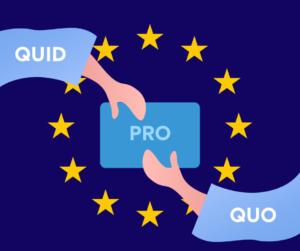Headquarters: Svetog Nauma 7, 11000
Office address: Đorđa Vajferta 13, 11000
Phone:: +381 11 4529 323

The truth can hurt; sometimes people find it easier to simply ignore it. This applies not only to state officials but also to civil society organizations, which often opt for optimism in regard to the date of Serbia’s accession to the European Union, in spite of the unfavourable situation on the ground. However, one ought to be bold and make the following message clear: considering the manner in which the current establishment manages this country, Serbia will not join the EU in 2025.
If one simply looks at the latest European Commission report, this message becomes crystal clear. For several years now, Serbia has not made any progress in terms of improving freedom of expression, and stagnation is also notably observed in progress in negotiating Chapter 23, which encompasses comprehensive reforms in key areas such as the judiciary, rule of law, as well as basic and minority rights. In fact, numerous analyses point to the fact that significant democratic backsliding has been taking place in Serbia, clearly observed these previous years.
In order for Juncker’s proposed 2025 membership perspective to become a reality, Serbia would need to close all of its negotiating chapters by 2023. As there are less than four years left, it is evident that there is insufficient time to make such progress and thus speed-up the accession process. This principle becomes even more unrealistic when one considers the fact that Serbia took five years to open sixteen such chapters and close only two. Any exaggeration of the pace of this progress would serve to mislead the public.
In fact, only after we openly face the fact that the “2025 perspective” is not in the cards, will we be able to target our criticism towards the establishment that has allowed the EU perspective to slip through its hands. The European Commission has lent us a hand, and Serbia, with its poor track record, provided a good reason for member states to react against Junker’s proposed perspective. Given that some member states are already quite sceptical of enlargement, Serbia’s behaviour goes hand-in-hand with their narrative that says the Union is unprepared for expansion to the Western Balkans.
What to do next? Although the truth hurts, it can help us to rethink our approach. Namely, civil society organizations should keep a closer watch on potentially negative trends which could threaten to undermine the accession process. Otherwise, once 2023 and 2025 have come and gone, Serbian citizens will likely blame the EU, as the establishment gets away with their underperformance by transferring responsibility to “distant” Brussels. An example of this tactic could be seen, for instance, during the reading of the last European Commission report; instead of accepting the responsibility for the lack of progress, the Serbian Prime Minister accused the Commission of politicising Serbia’s accession process.
In order to avoid this kind of scenario in the future, and to help citizens build their own sense of the situation, civil society will have to take a stronger role than before. Since we live in a time when it seems that “fake news” often has dominance over the hard facts, with a power that is often intoxicating, providing objective information to, and engagement of, citizens, will be more important than ever.